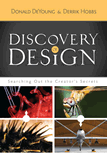How Does the Human Brain Compare to a Computer?
Which do you think is faster, more flexible, and smarter—your brain or a computer? God made the human brain to perform in amazing ways that could never be matched by a computer! Scientists do not fully understand the mysteries of the human brain, and are trying to make new, fascinating discoveries about how it works.
The human brain is very flexible. Many times blind people develop heightened senses in other areas, like hearing and touch, because their brains adapt to a lack of sight. Have you ever practiced sports or a subject in school? You will become better with practice, because your brain has the ability to learn and change.
. . . acquiring skills would be impossible if our brains were “hardwired” at birth. To sort through all the data that our body’s sensors record, the brain has been designed to change. Our brain is not a computer, made of solid-state wires and silicon wafers. It is three pounds of living, growing cells that constantly form new connections and change old ones.
The brain’s flexibility enables us to quickly acquire new skills, learn new information, and create new memories. Further, if our brain suffers certain types of injury, brain cells can take over the function of the dead or damaged cells.1
The brain’s flexibility allows people to respond very quickly to danger, sometimes in less than half a second!2 Would you like to perform an experiment that tests the brain’s flexibility?3 You will need an adult’s help.
See for Yourself . . .

You’ll need to think fast for this experiment, and you’ll need a friend to help.
Materials
A ruler, a pencil, and a piece of paper to keep track of your results
Procedure
Have your friend hold the ruler vertically so that the zero end points down toward the floor. Put your hand in a C shape around the bottom of the ruler. Get as close to it as you can without touching. This will allow you to catch the ruler when it falls.
Ask your friend to count from one to ten. At some point during the counting, he or she will drop the ruler.
Catch the ruler as fast as you can by pinching your fingers shut.
Write down the point where your fingers pinched the ruler.
Repeat the process several times.
Calculate the Results
To figure out your reaction time, use the following equation, where d is the distance the ruler falls in inches and t is your reaction time in seconds: t = 0.072 x √d.
- At 2 inches (5 cm), your reaction time is around 100 milliseconds (0.1 seconds).
- At 6 inches (15 cm), your reaction time is about 175 milliseconds.
- At 7.7 inches (19.6 cm), your reaction time is about 200 milliseconds.
- At 12 inches (30.5 cm) your reaction time is about 250 milliseconds (0.25 seconds).
Try This:
Try catching the ruler with the hand you don’t write with. In other words, if you’re left-handed, use your right hand to catch. Are your times different with that hand?
Turn on a TV or radio in the same room that you’re trying the experiment. How did it impact your reaction time?
Get a group of friends or family members to do the experiment. Plot the times on a graph. Does age make any difference? Do women do better than men?
Ask your friend to tell you ahead of time when the ruler will drop. Were you able to snatch the ruler faster?
[Editor’s Note: Adapted from an article by John UpChurch, “Experiment: The Brain—Your Nimble Noggin,” Answers, July–September 2013.]
It takes people, who aren’t perfect and make mistakes, to design a computer. God, who is perfect, made people on Day Six of the Creation Week around 6,000 years ago. He said that everything He made was “very good” (Genesis 1:31). This means that everything was perfect. After Adam and Eve sinned, disease and sickness entered the world, which affects the human body. Sometimes our bodies and brains do not develop correctly, or become sick. God, in His mercy, has provided a way for us to have new, perfect bodies—and to spend eternity with Him! If you want to learn more about this, please read the good news.
Footnotes
- David DeWitt, “Brain—Shaped by Experiences,” Answers, October–December 2009, 54–57, www.answersingenesis.org/human-body/brain/brain-experiences/.
- John UpChurch, “Experiment: The Brain—Your Nimble Noggin,” Answers, July–September 2013, 30–31, www.answersingenesis.org/human-body/brain/experiment-the-brain-your-nimble-noggin/.
- Ibid.
Recommended Resources
- © 2024 Answers in Genesis
- Privacy Policy
- Contact
- About


